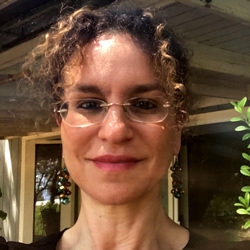

Search Results: judgment
-
Inspired by Marshall Rosenberg's teachings, Kathleen Macferran's self-empathy exercise offers a transformative approach for those challenging moments when you fall short of your own expectations.
-
Inspired by Marshall Rosenberg's teachings, Kathleen Macferran's self-empathy exercise offers a transformative approach for those challenging moments when you fall short of your own expectations.
-
Trainer Tip: It's impossible to value other people’s needs and remain compassionate if we simultaneously harbor judgments. If we're willing to shift this behavior we can translate our judgments into acknowledging how something affects us. Once I got into the habit of this, my judgments began to subside dramatically. It became easy to love people and feel compassion for them, and I experienced a freedom I had never known before.
-
Trainer Tip: Using NVC as a tool to transform our judgments can revolutionize our perceptions and relationships.
-
Judgment is an attempt to protect from hopelessness or insecurity, at high cost. Instead, check in with fear, grief, or hurt. Then wonder what needs are at stake for everyone. This makes space for grief instead of anger, for negotiation rather than control, and for "calling in" rather than excluding. Wonder: “For whom would this be life-serving or not?”, “What strategies would care for all needs?” or, “What can I contribute now?”
-
Trainer tip: When we express moralistic judgments we are implying that other people are wrong or bad because they don’t act in ways that are in harmony with our values. Judging the situation or people can create distance and hurt. Instead, we can express our needs and how we're affected, bringing greater connection and healing. Today, notice how often you judge, and how you feel when you judge.
-
Trainer tip: Whenever we judge someone else in any way, we create a barrier and distance between us and the other person. Instead, consider shifting from judging other people to awareness of how their behavior affects your feelings and needs. This can make a profound difference in your ability to live peacefully. Read on for more.
-
Trainer Tip: Whether we listen to our own or the other person’s needs first, connecting to needs can help us release judgments of others, see their humanness, help us to begin to hear them and ultimately connect to them. Be aware today of times when you are judging someone. Then be aware of your own needs to improve your connection to them.
-
Trainer Tip: Thinking someone is bad, wrong, or evil can make it more difficult to connect with them. If we focus on this kind of thinking, we stay in the problem or conflict. The minute we step out of judgement and listen for the needs underlying their actions, we begin working for the solution. Put your focus in the direction of the result you want. Read on for an example.
-
A theory of judgment is that it is how we make sense of life and quickly assess what is safe or not safe. However, this has somehow been translated into right/wrong thinking. In this video, Aya explores different kinds of judgments and examples of each.
-
Bridget Belgrave talks with an interviewer about his response to the term Nonviolent Communication.
-
Trainer tip: Various life circumstances that can seem to be something that we don't want, and we may think of them as bad. And then later the situation may reveal that it's a circumstance that we do want, and we may think of it as good. Instead, of evaluating our day as good or bad we can acknowledge the feelings and needs that are present. Read on for a few anecdotes that illustrate this.
-
Trainer Tip: Today, identify the facts, without adding your ideas about why people behave in certain ways. Then consider connecting with the person about what was going on with them. You will find that the more you observe life without judgment and evaluation, the more open you will be to hearing and connecting with other people.
-
Trainer tip: From the NVC perspective, everything someone says or does is either a “please” or a “thank you". In our culture, saying “thank you” usually involves an appreciation in the form of judgment or evaluation. Remember, whether we judge someone as good or bad, judgments and evaluations can create disconnect or tension. Instead, notice how their actions have enriched life, and what feelings it stimulated.
-
-
The Compass – Arnina Kashtan's in-depth transformational process – is specifically designed to support you in reliably deepening your understanding of your own and others' conditioning, and finding ways to reclaim your full connection with yourself.
-
-
Eradicating judgments is likely impractical as our minds naturally form them. However, understanding inevitable judgments as indicators of our needs rather than truths can foster empathy. Expressing needs rather than judgments can better support connection and openness between one another.
-
In parenting, Roxy Manning notes the tendency for self-judgment and external judgment. Roxy suggests that being a single parent or a working parent influences your ability to implement parenting strategies. The importance of assessing the feasibility of strategies in one's current life context is emphasized. Roxy encourages self-compassion and mourning the gap between desired and achievable outcomes. Her message encourages understanding personal constraints and practicing self-compassion in parenting.
-
Trainer Tip: There's often a large gap between what we experience, and the story we make up about it. Noticing how our judgments and assumptions cloud our observations can be critical to creating a connection with others and maintaining a Nonviolent Communication consciousness.

Quick Links
Subscription Preferences
Stay In Touch!
Looking for ways to keep up with NVC Academy news, get special offers, free resources, or words of inspiration? Here are five ways to stay engaged:

















